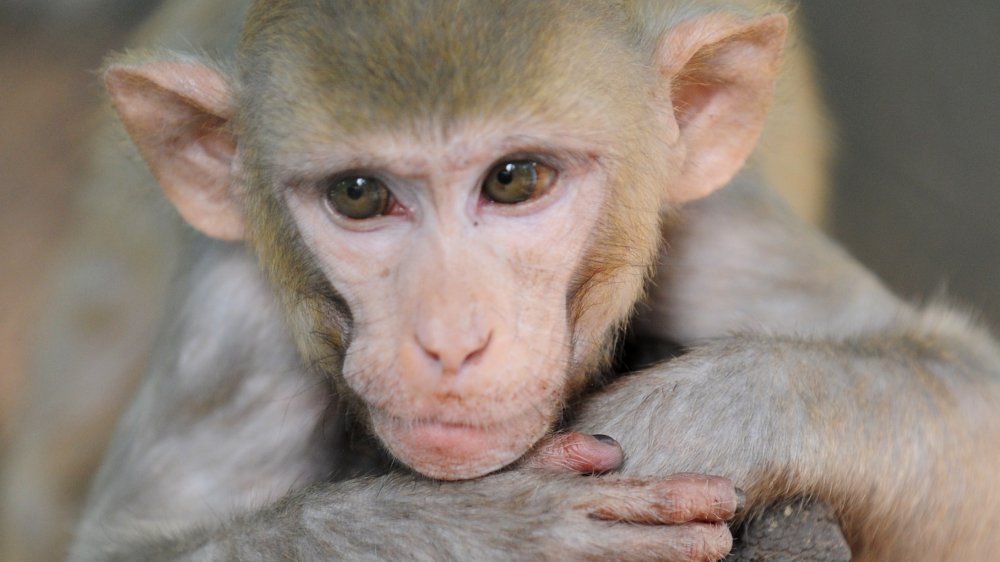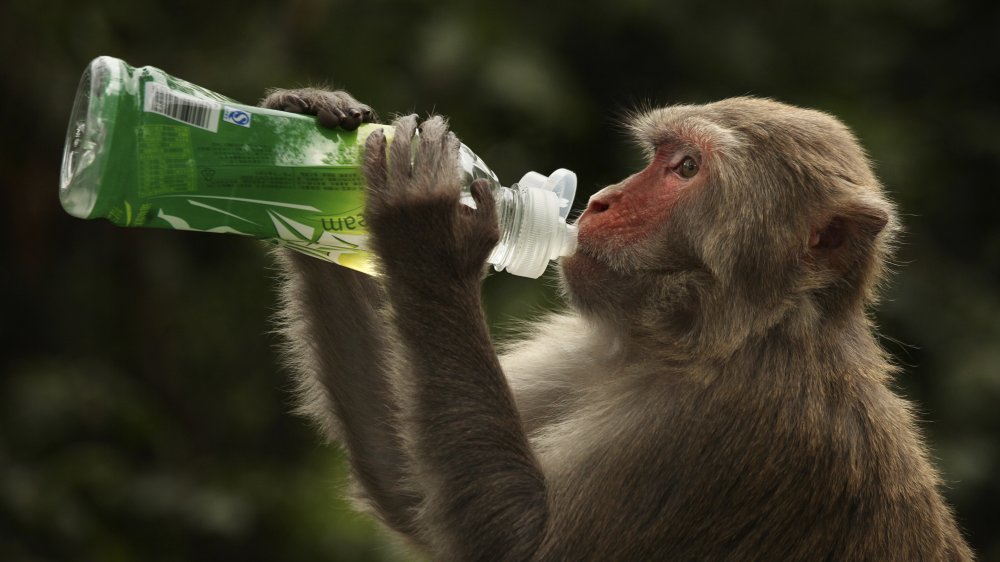The Monkey That Is Closest To A Human
As far as humans are concerned, one of the greatest honors you can bestow on another animal species is to describe it as humanlike. By that metric, the Planet of the Apes movies count as the highest form of praise for any creature in existence. But what about monkeys? Though they're primates, monkeys are biologically distinct from apes, according to Smithsonian's Human Origins Initiative. They haven't shared a common ancestor for about 25 million years.
Humans fall into the category of great apes and have the most genetic overlap with chimpanzees, which may explain why Charlton Heston didn't exclaim, "Get your stinking monkey paws off me!" (The sad part is that some monkeys do have stinky paws, like the wild howler monkeys of Belize, which are known to throw poop.) But since Heston didn't have anything to say about monkeys, let's show the little guys some love by comparing them to people. Which species comes closest to resembling the dystopian primate overlords on this planet of the humans?
Rhesus monkeys are a lot like people
According to the National Institutes of Health, the first nonhuman primate to have its genome sequenced was man's closest living relative, the chimpanzee, which is a great ape. The second was the rhesus macaque, a species of Old World monkey, which suffers from a simian equivalent of HIV known as the simian immunodeficiency virus (SIV). According to Laboratory Animal Medicine (via ScienceDirect), SIV can be transmitted sexually or through open wounds. But while apes such as chimps and gorillas can contract SIV as well, rhesus monkeys are "widely recognized as the best animal model for human immunodeficiency virus (HIV) infection."
That's because rhesus macaques share about 93 percent of their genome with both humans and chimps. Standing at around 1'6" and weighing an average of 12 to 17 pounds, per the Florida Fish and Wildlife Conservation Commission, they look far more adorable than face-ripping chimps. But don't be fooled. In addition to SIV, these monkeys carry an exceedingly dangerous disease: herpes B. And yeah, that can lead to brain damage and death in humans, according to Time. The monkeys can even spread the illness by biting and scratching people. This is only known to have happened with captive macaques, and since 1932, there have only been 50 instances of transmission. Sadly, 21 of the people who contracted monkey herpes died.
So yeah, in other words, rhesus macaques are incredibly human-like ... because we share the same deadly germs. Hooray?

